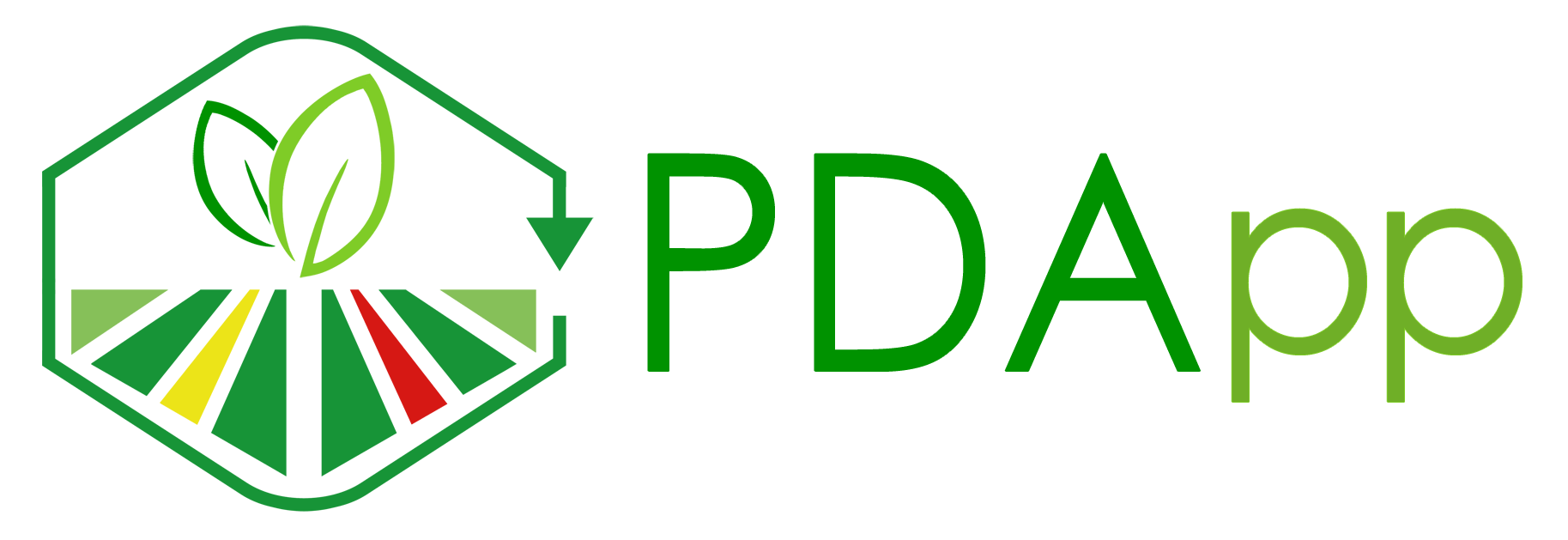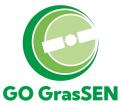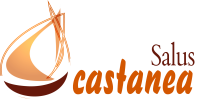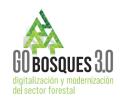
PDApp Operational Group: Moving toward a digital model for zero waste in the agri-food sector
- Type Operational group
- Status Filled
- Execution 2022 -2025
- Assigned Budget 599.480,28 €
- Scope Supraautonómico
- Autonomous community Cataluña; Galicia; Madrid, Comunidad de; Murcia, Región de; País Vasco
- Main source of financing CAP 2014-2020
- Project website https://pdapp.coag.com.es/PDApp/
The PDApp project promotes the reduction of food loss and waste in the agri-food sector through digital tools based on the principles of the circular economy and the bioeconomy. The PDApp project will design a decision-support service for companies and stakeholders in the primary sector that will help them prevent FLW. The service includes the necessary support for companies to create the appropriate tools for the digitalization of their Food Loss and Waste Prevention and Reduction Plan (FLRPP). The digitalized FLRPP will assist companies in decision-making, based on sustainability criteria, and in establishing corrective measures, as it will include real-time and cumulative data on FLW, donations, and recovery. Furthermore, the project will create a digital tool for the exchange of generated surpluses between different stakeholders, such as food processing companies, NGOs receiving donations, livestock farmers, feed manufacturers, and others. These tools will ensure traceability and reporting of waste disposals to the government. These proposals are in line with the upcoming Food Loss and Waste Prevention Act, approved by the Council of Ministers in 2021 and currently being amended. The companies involved in the consortium will validate the service by implementing it in the final year of the project.
The GO PDApp has developed a Food Loss and Waste (FLW) Quantification Guide, a document that describes the methodology for quantifying FLW using efficient techniques, obtaining representative data with minimal investment of time and resources, especially for the fruit and vegetable sector.
The Guide is available at this link: https://tinyurl.com/2c4g7ljd
The main steps of the process are:
- Define the scope. This involves defining what you want to measure, based on this series of elements:
- What to analyze?
- What products or lines will be taken into account?
- When to quantify?
- What period of production/processing/marketing will be considered?
- At what level of detail?
- Which operations are prioritized because they generate more PDA?
- What to quantify?
- What types of PDA will be taken into account?
- Why do PDAs occur?
- Where are PDAs used?
- Establish the methodology based on ease of access to data, resources, business size, and production complexity.
- Quantify, including:
- Define a schedule of activities and assign those responsible.
- Define the materials needed for each task.
- Define the investment of economic resources.
- Train staff and responsible persons.
- Conduct a pilot quantification.
- Collect the records.
- Extrapolate the data.
- Make a summary of the data obtained.
- Convert the results into economic, environmental and social indicators.
The methods used follow the common European methodology (Delegated Decision (EU) 2019/1597) and international protocols.
GO PDApp has developed a digital platform for the prevention and management of food loss and waste (FW).
This explanatory document details its main features and utilities (https://tinyurl.com/27fj7urj). To register, follow these simple steps (https://tinyurl.com/2cq3wo7k). Access the platform by clicking this link: https://app.coag.com.es/onboarding/login.
The tool provides a Prevention Plan in digital format, following an analysis, diagnosis, and quantification of the PDA situation, which aids decision-making. It also includes a sustainability tool, which supports and aids decision-making on how to channel losses with the least possible impact, from a social, economic, and environmental perspective. This helps ensure compliance with the legislation's hierarchy of priorities. A Marketplace has also been created where interested parties can agree on how to manage the transaction and donation of PDAs, with the corresponding traceability and registration control. Finally, this entire system is supported and facilitated by experts, who facilitate the entire process.
To test the system, nine Prevention Plans for companies have been developed, and more than 70 real-life exchanges have been carried out on the Marketplace between generating and receiving entities (processing companies or social food donation organizations) to verify the correct functioning of this part of the tool.
The Digital Platform developed by the GO PDApp includes a back-end tool to measure the impact on the sustainability of companies due to the Food Loss and Waste (FLW) they generate, as well as the influence of measures to prevent, minimize, or reduce these pipelines.
A bibliographic analysis was conducted to identify studies conducted in LCA, LCA, and LCA-S. From this, the indicator calculation models and the tool integrated into the PDApp digital platform were developed. Finally, the impact reports generated from the exchanges carried out in the PDApp Marketplace were designed.
One indicator has been chosen for each dimension of sustainability:
- Carbon footprint: CO2 emissions from growing and/or processing food that becomes wastewater and its subsequent management.
- Cost: Economic expense for the producer for growing and/or processing a food that becomes FLW and its subsequent management.
- Wasted meals: Number of meals that have not been used when a food becomes FLW.
To calculate these indicators, the type of fruit and vegetable product, the stage of the production chain in which it is produced, the distance it has traveled, and its final destination are taken into account. These indicators have several functions, including assessing the impact of quantified FLWs, as well as the impact variation of the channeling carried out through the Marketplace. Once the exchange is completed, reports are generated so that the producer can demonstrate impact reductions compared to the non-reuse of food. Furthermore, since they are endorsed by the portal itself, they are binding, traceable, and invariable.
The PDApp proposal aims to reduce food loss and waste in the fruit and vegetable sector through the development and validation of new services supported by digital tools, aimed at (i) enabling companies to safely channel the waste produced through a PDA platform to other companies in the food industry (food symbiosis), donation and other types of distribution for human consumption by connecting companies with the receiving social entities, channeling towards the animal feed processing industry or other non-food industries (industrial symbiosis); (ii) being able to develop a Food Loss and Waste Prevention and Reduction Plan (PPRPDA) in a guided and digital way that will assist companies in decision-making and in establishing corrective measures; and (iii) being able to decide on the best FLW prevention alternatives available thanks to the knowledge of the economic, social and environmental benefits.
- The main objective is to reduce food loss and waste in the agricultural sector, particularly in the fruit and vegetable sector, through digital tools.
- A decision-support service will be designed for companies and agents in this sector to help them prevent PDAs.
- This service includes the necessary support to digitize your Food Loss and Waste Prevention and Reduction Plan, which will be mandatory in the future.
- Work will be done on a digital tool that aims to enable the exchange of generated surpluses between different stakeholders (processing industry, NGOs receiving donations, livestock farmers, feed manufacturers, etc.), ensuring traceability and reporting of waste to the authorities. This is also expected to become mandatory once the national regulations on this matter are approved.
- A precise diagnosis of food losses and waste in the fruit and vegetable sector will be carried out.
- Emphasis will be placed on raising awareness of the importance of measuring and reducing FLW.
- SPECIFIC OBJECTIVES
- Diagnose food losses and waste in the fruit and vegetable sector.
- Facilitate the implementation of PDA prevention plans in the primary horticultural sector.
- Facilitate decision-making for the prevention of wastewater based on sustainability criteria (environmental, social and economic)
- Provide alternatives for preventing fruit and vegetable FLA following the hierarchy of food uses adapted to the sector and the territory.
- Raise awareness among companies in the fruit and vegetable sector about the importance of reducing FLW and measuring it.
- PDA of diagnosed fruits and vegetables (quantification and causes)
- FLW prevention plans developed by 9 companies in the fruit and vegetable sector and a system for measuring the environmental, social and economic impact of said FLW and the prevention alternatives defined.
- Prevention or recovery alternatives for companies with potential surplus wastewater
- Increasing awareness and sensitivity for the prevention of FLA among agents in the fruit and vegetable sector
- Coordinator/entity name: ESPIGNOLADORS
- Coordinator/entity email: raquel@espigoladors.com
- Galinsect SL
- Trasdeza S.C
- LTDA
- E.I ES IM-Perfect food S.L.
- Newen Europe Fresh SLU
- Cooperativa agrícola Levante Sur Soc
- Cooperativa
- Antigua vida nueva
- Fundacio Espigoladors
- Asociación empresarial centro tecnológico energía y medio ambiente (CETENMA)
- Fundación Centro Tecnolóxico de eficiencia e sostenibilidade enerxética (ENERGYLAB)
- Oreka Circular Economy SL
- Coordinadora de organizaciones de agricultores y ganaderos (COAG)
- Kiwi atlántico S.A.
- Jimbofresh Internacional SLL
- Conca de la Tordera S.c.c.l







